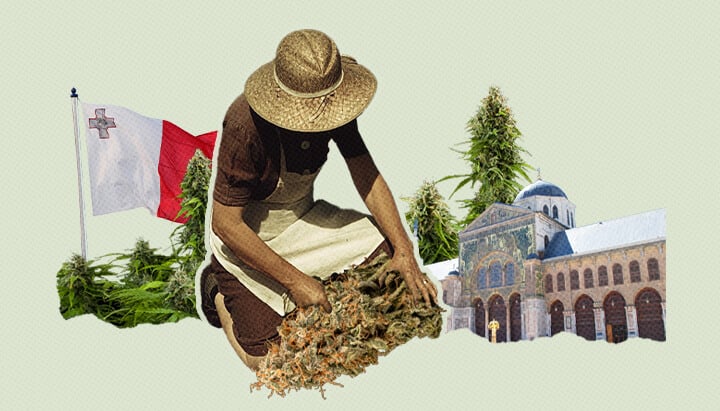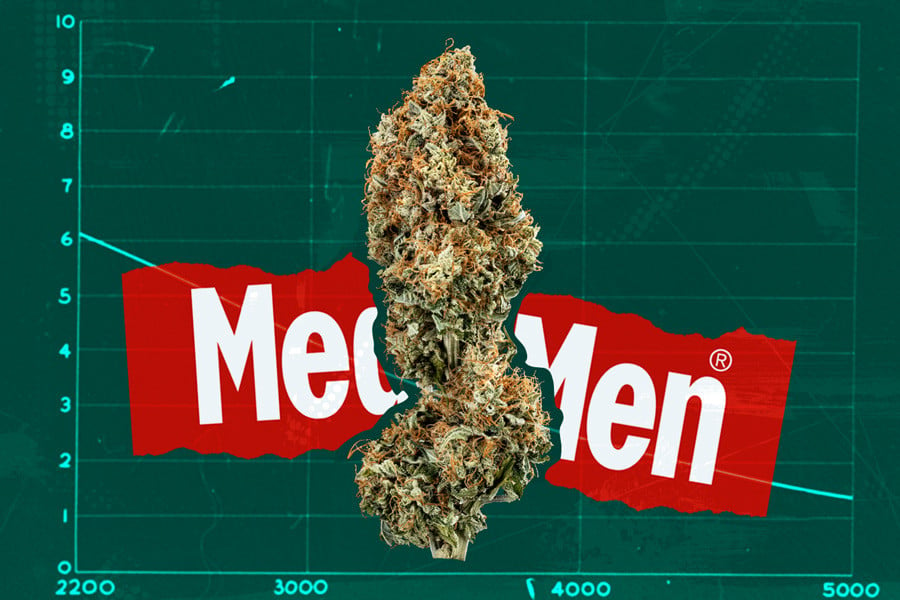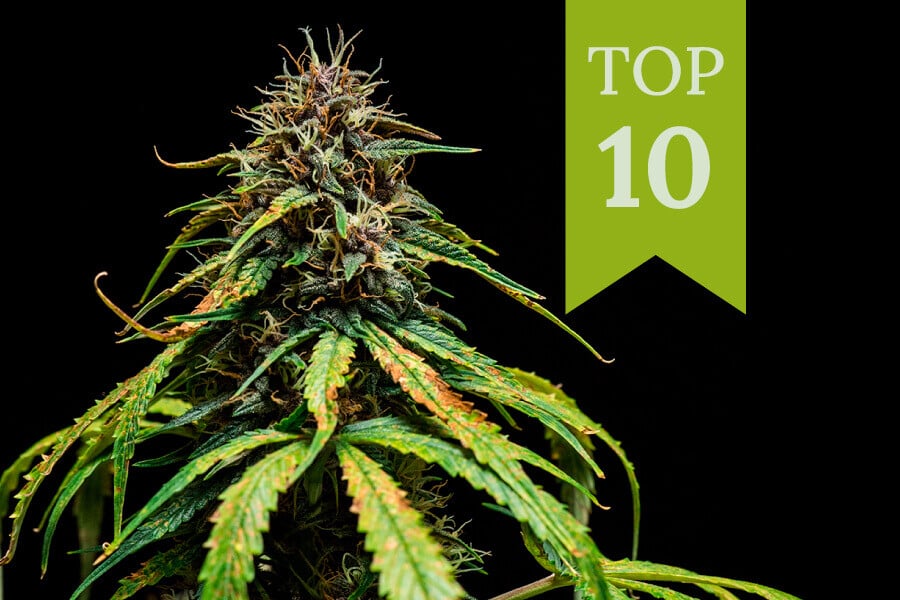.

What Is Reefer Madness and Where Does It Come From?
As cannabis prohibition draws to a close in many countries, many people still fail to view the plant from an evidence-based perspective. Unbeknownst to them, bombastic propaganda from the previous century is still sending out ripples that influence the way they see cannabis. Discover the history of Reefer Madness and its lasting influence.
Contents:
Cannabis ranks as one of the most controversial plants on the planet. While its psychoactive effects set it apart from many other species, vicious pieces of propaganda from almost a century ago have tarnished its reputation, and only now is the plant starting to shed its unsavoury image. Among these, the cult classic film Reefer Madness stands out as one of the most bizarre and detached from reality. Continue reading to discover the history of cannabis prohibition and the hysteria of Reefer Madness.


When Did Cannabis Hysteria Start?
Cannabis prohibition is easing in certain parts of the Western world, with countries such as Malta and Luxembourg legalizing home cultivation. However, not only did such advances seem like the stuff of fiction only a matter of years ago, but many countries across the world continue to punish citizens who grow, possess, and use the herb. But things haven’t always been this way. In the past, several nations embraced cannabis—and even mandated the plant’s cultivation.
The ancient historical use of cannabis spans several cultures, including as a psychoactive herb among Hindus in modern-day India as well as nomadic Scythians. More recently, historically speaking, King Henry VIII decreed[1] increased hemp cultivation in the early 16th century as an industrial product used in shipbuilding. Even closer to the modern era, between 1840–1900, cannabis wasn’t just legal in the United States but was prescribed[2] as a medicinal product.
So, when did it all get so draconian? Several instances of cannabis prohibition have sent ripples throughout human history. In the modern era, we’re still experiencing the repercussions of the anti-cannabis hysteria that took place in the United States during the early 20th century. The so-called “Reefer Madness” era witnessed a barrage of bombastic anti-cannabis propaganda that set the stage for strict prohibition and inserted distorted views and irrational fear into the minds of many.
But keep in mind, although this period of social conditioning still has a tangible impact today, it didn’t emerge as a unique historical event. The earliest restrictions[3] placed on cannabis occurred in the Islamic world during the 14th century, when religious leaders outlawed the use of hash, viewing its use as contrary to a moral life. As hash use became so prevalent—to the point where users even ate it in mosques—the Ayyubid sultan ordered the uprooting and burning of weed plants in Syria.
Cannabis prohibition also reared its head in Madagascar in 1817 throughout the Merina Kingdom, where the king implemented the death penalty as punishment for using the plant. Likewise, cannabis restrictions also arose in Brazil in 1830, British Singapore, and Natal (modern-day South Africa) in 1870. These examples are just a handful of cases of cannabis prohibition throughout history—a complex phenomenon still in full force today throughout much of the world.
Out of all of these cases, the anti-cannabis hysteria of early 20th century America rings out the strongest today. Let’s take a deeper look into exactly what unfolded.
.jpg)

-
The Marijuana Menace: The Herb Vilified
The sensational term “Marijuana Menace” was coined by propagandists of the era to warp the perception of cannabis among the American population. Both media outlets and politicians added fuel to the fire of anti-cannabis campaigns and stirred up moral panic by painting cannabis, its users, and its effects in an unrealistic light.
The motivations for this character assassination of the herb are manifold. The official reasons for targeting cannabis revolved around concerns about its links to psychosis, the erosion of cultural moral values, and its association with crime. However, look a little deeper, and rather suspicious connections start to build an entangled web involving economic, political, and racial agendas.
Out of all the propagandists tasked with dirtying the image of cannabis, Harry Anslinger stands as the most effective and pernicious. Although Anslinger reportedly viewed cannabis as relatively benign before becoming the first commissioner of the Federal Bureau of Narcotics, his opinion quickly turned and he became one of the architects of the United States’ war on drugs. Having written anti-cannabis articles with titles such as "Assassin of Youth", Anslinger played a key role in spreading marijuana misinformation, often tinged with racist rhetoric towards Mexican migrants.
Some might view Anslinger’s work as noble, since he spearheaded a movement to protect the American public against the dangers of a harmful drug. Looking at the evidence, it’s clear that cannabis does cause some level of harm[4], including a heightened risk of mental health issues in some people. However, it appears Anslinger fulfilled his role with strings attached, and powerful figures across different domains were pulling them.
Anslinger had a famous relationship with William Randolph Hearst, a media mogul and owner of several paper-producing companies. Due to his economic investments, Hearst viewed hemp as a threat to this paper business. Interestingly, Anslinger wrote several articles for newspapers owned by Hearst, including his “Gore Files” series that documented horrific acts supposedly performed by users of cannabis under the influence.
But Hearst wasn’t alone in seeing hemp as a threat. DuPont, a petrochemical and synthetic fibre giant, had recently created a nylon fibre at the time that would directly compete with hemp in textile and rope manufacturing. Adding to this, figures in the alcohol, pharmaceutical, and cotton industries all would have favored the elimination of their botanical competition.
How Was Cannabis Made Illegal in 1937?
Following a relentless anti-cannabis propaganda campaign, the Marihuana Tax Act of 1937[5] was the final nail in the coffin for legal cannabis in the United States. Created to limit the cultivation, distribution, and therefore possession of cannabis, the legislation placed huge prohibitive taxes on those dealing in hemp, making it practically impossible to stay in business.
What Was Reefer Madness?
Looking back at the propaganda of the era, Reefer Madness, the film from which this period of history derives its name, stands out as one of the most sensational pieces. Produced in 1936 and funded by a church group, this cautionary tale and cult classic focuses on a group of drug dealers who lure teenagers back to their apartment to smoke marijuana. The plot gradually unfolds in a way that ties cannabis use to a range of atrocious acts, including a hit-and-run accident, attempted sexual assault, and hallucination-induced murder. The film goes on to suggest that using marijuana, even just once, can lead to criminal urges and addiction.
Originally screened in community centers to warn viewers, the film quickly received criticism for its exaggeration of the dangers of cannabis. However, the flick certainly tarnished cannabis in the minds of many, portraying it as a hardcore and dangerous drug. To this day, many cannabis users enjoy the unintentionally humorous and bizarre scenes.


The Lasting Influence of Cannabis Propaganda
Much of the cannabis prohibition in the Western world has ties to the United States’ war on drugs, a period that the Reefer Madness era helped to lay the foundations for. In the modern era, many people, including high-ranking politicians and medical professionals, maintain a skewed view of cannabis. Through a lack of education on the topic, they view it as a substance akin to much more dangerous and addictive substances. Their perception isn’t based on available evidence, but is in fact closer to anti-cannabis sentiments of the early 20th century in America.
While prohibition is losing its grip across the world, from Germany to Thailand, many nations remain behind the times and ignorant of the evidence. While modern minds don’t struggle to see how detached from reality films like Reefer Madness are, not everyone, including policymakers, knows enough about the plant to make this (important) distinction.
Reefer Madness: A Cult Classic That Now Inspires Change
Reefer Madness propaganda certainly damaged the reputation of cannabis in the eyes of many. The architects behind the messaging not only targeted cannabis as a psychoactive substance, but also non-psychoactive hemp that boasts a wealth of industrial uses. However, the worldwide reform of marijuana laws shows that pro-cannabis advocates and campaigners are helping to return evidence to policymaking. As science helps to consolidate a clearer picture of the reality of the dangers and benefits of cannabis, the world is shedding the madness of Reefer Madness.
- Recent palaeoenvironmental evidence for the processing of hemp (Cannabis sativa L.) in eastern England during the medieval period - White Rose Research Online https://eprints.whiterose.ac.uk
- About Cannabis Policy | APIS - Alcohol Policy Information System https://alcoholpolicy.niaaa.nih.gov
- Hashish in Islam 9th to 18th century https://europepmc.org
- Is Marijuana Bad for Health? https://www.scientificamerican.com
- Marijuana Was Once a Legal Cross-Border Import? https://www.cbp.gov





































